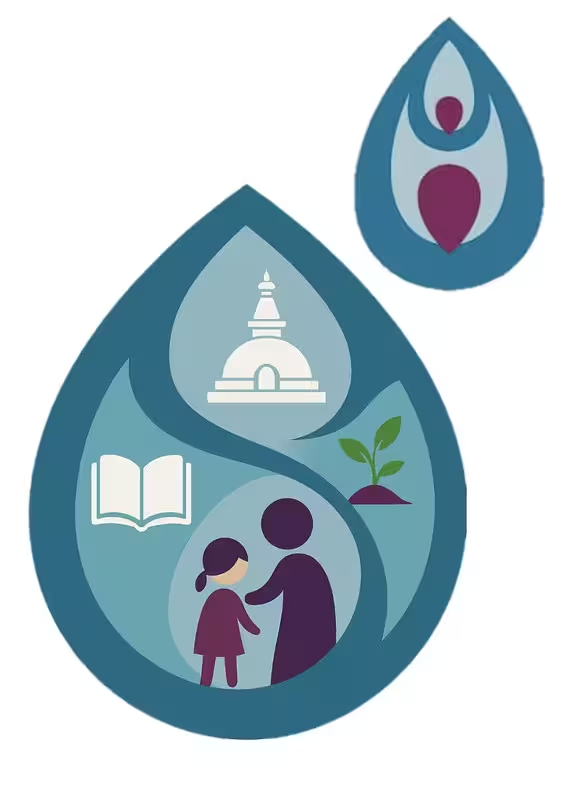Homepage
Partnership for Sustainable Development
PSD Nepal is a non-profit, non-governmental organization founded in 2002 that empowers vulnerable communities across Nepal through education, health, environment, and women’s empowerment projects. We work hand in hand with local partners and international volunteers to create lasting, community-driven solutions that promote equality, sustainability, and resilience.
Our Impact
Over the past two decades, PSD Nepal has worked hand in hand with communities across the country to create lasting change in education, health, and sustainable development.

Key Achievements:
-
113 Early Childhood Development (ECD) Centers established
-
143 drinking water facilities and 114 toilets built in ECD centers
-
Educational support and teacher training provided in 40 ECD centers
-
2,200+ volunteers from Nepal and abroad engaged in fieldwork
-
30,000+ villagers reached through community-driven projects
-
87 schools and 150 homes built for families affected by earthquakes
-
Projects exceeding $1 million successfully implemented
-
Strong collaboration with local governments and the Social Welfare Council
Recent Events
Parvat Manthan Regional Conclave — New Delhi, December 2024
In December 2024, PSD Nepal’s Executive Director, Mr. Bishnu Bhatta, participated in the Parvat Manthan Regional Conclave, held at the India Habitat Centre in New Delhi and organized by NIUA’s Sanitation Capacity Building Platform (SCBP). The regional forum brought together Himalayan region stakeholders — from government, academia, NGOs, private sector, and communities — to discuss integrated water resource management, equitable sanitation, waste management, municipal finance, and climate resilience in mountain towns.
During his role as delegate, Mr. Bhatta shared PSD’s work in Himalayan hill regions — particularly on climate resilience, water and sanitation infrastructure, and community-led solutions. The conclave emphasized that sustainable mountain development must account for local context, governance, resources, and innovation.
External coverage underscored the urgency of addressing water and waste challenges in mountain settlements, calling for stronger financing, policy support, and cross-border collaboration.
Connecting the Dots Between Climate Change and Health - Kathmandu, March 2024
A vital hybrid workshop titled “Connecting the Dots Between Climate Change and Health” was held in Kathmandu, Nepal, bringing together global leaders, policymakers, scientists, and community implementers to address the pressing climate-related health challenges in South and Southeast Asia.
The event featured esteemed speakers discussing critical issues such as the political economy of climate and health, research and innovation, and pathways from research to policy and impact. Participants emphasized the importance of community-led approaches, equitable health systems, and regional cooperation.
The workshop culminated in the establishment of the “Kathmandu Commitments 2024”, outlining a shared vision for the South and Southeast Asia Regional Research and Innovation Hub for Climate Change, Health, and Equity.
These commitments focus on strengthening local solutions, fostering community involvement, advancing methodological development, and building resilience through collaboration across sectors and countries.
Organized jointly by Grand Challenges Canada, USAID, The United States National Academy of Medicine, The Nepal Health Research Council, and PSD Nepal, the event marked a key step in uniting science, policy, and grassroots experience to tackle the complex intersection of climate change, health disparities, and social equity.
Read more: InterAcademies News | NAM Proceedings (PDF)
PSD Nepal at COP28 — Dubai, December 2023
Strengthening Climate and Health Resilience in the Himalayas
PSD Nepal was proudly represented at COP28 by our Executive Director, Mr. Bishnu Bhatta, who spoke on the critical linkages between climate-change-driven disasters, healthcare, and rural resilience in Nepal.
At both the Nepal Country Pavilion and the WHO Health Pavilion, Mr. Bhatta highlighted PSD Nepal’s field work in Langtang Valley (Rasuwa), emphasizing the importance of local solutions in addressing climate vulnerability and health inequities. Each session drew audiences of over 1,500 participants.
Throughout COP28, PSD engaged in several high-impact events, including:
-
“Preserving Health and Resilience in the Himalayas: Nepal’s Climate Odyssey” — a side event hosted by PSD at the Nepal Pavilion.
-
Participation in the Monash University Pavilion session on Digital Health Solutions for Climate Change Resilience.
-
Contribution to Climate Medicine Day at the Entertainment + Culture Pavilion, where PSD’s Dr. Suresh Tiwari discussed integrating research, equity, and policy for climate-health adaptation.
In addition, PSD’s plastics recycling and upcycling initiatives were featured as innovative examples of circular-economy practices that link environmental sustainability with community well-being.
Read more: ECHAlliance – PSD Nepal Champions Climate and Health Resilience at COP28
PSD Newsletter

The newsletter will keep you updated on PSD Nepal news and activities, successes and future plans. Any questions and/or comments regarding the newsletter or about PSD Nepal are more than welcome. Please forward this newsletter to all those who have worked with us. We also publish relevant articles, views and comments sent by our partners and supporters. If you have anything worth sharing, please email it to us.
Click here to download our latest newsletter and here to view our previous newsletters.
